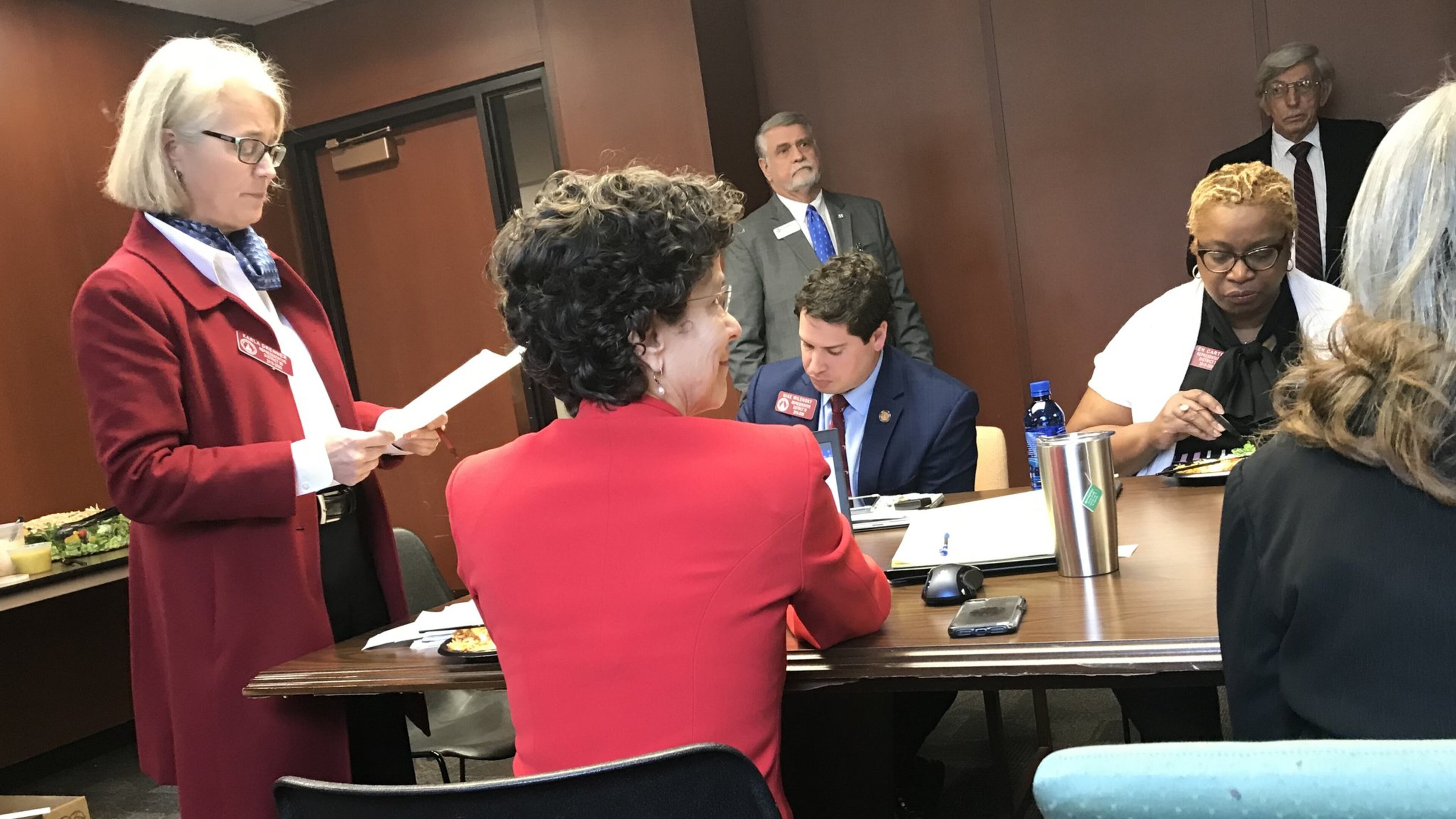DeKalb ethics talks off to bumpy start under Gold Dome

Buckle up, DeKalb County. It doesn’t appear the road to new ethics legislation will be any less bumpy this time around.
DeKalb's delegation to the state House met over lunch Wednesday, its first gathering since voters shot down last year's contentious attempt at reshaping ethics oversight in the county's government.
The plan was to discuss appointments to a new joint committee with the Senate, a so-called “ethics task force” envisioned as a clearinghouse for ethics-related legislation.
But freshman Rep. Matthew Wilson, D-Brookhaven, sent the meeting in a different direction by insisting a bill he'd already drafted be presented — and by suggesting that his legislation wouldn't need the task force's approval to move forward.
“If this was my other job, and my subordinate or my boss did not come and talk to me beforehand and then in a public setting took me off guard, I would be a little disappointed,” said delegation chair Rep. Karla Drenner, D-Avondale Estates.
“I’m a little disappointed today.”
In Aug. 2018, the Georgia Supreme Court ruled that the process for certain appointments to DeKalb's ethics board was unconstitutional. The decision effectively neutered the panel tasked with investigating corruption and conflicts of interest within the county government.
Last year, a piece of legislation initially aimed at fixing the ethics board appointment process morphed into a bill with much more substantive — and divisive — changes to DeKalb’s ordinance. The change was overwhelmingly rejected by DeKalb voters in November.
The bill Wilson has drafted this year presents a "clean fix," addressing the issue of how ethics board appointments are made and nothing else. In a split 5-2 vote, DeKalb's Board of Commissioners recently adopted a resolution supporting it.
“I can’t for the life of me understand what is left to debate on this issue,” Wilson said. “… The only thing we have to do to get the board back up and running is fix the appointment process. And that’s all I’m trying to do.”
There’s plenty of division on the “clean fix” concept itself. But Wilson also rankled some colleagues by suggested he’d circumvent the newly established “task force” if need be.
Drenner and others said Wednesday that, traditionally, local legislation presented by delegation members is sent to a committee, which must give a vote of approval before it can go further.
Wilson said, in his interpretation, the delegation’s bylaws only say a committee must “consider” legislation — not that it has to give the go-ahead. He argued that he can begin collecting the signatures necessary to continue the process once his bill is formally read for a second time next week.
Drenner suggested that would be “a deviation from the past” and said she would seek an opinion from the Office of Legislative Counsel.
Representatives Billy Mitchell and Rennita Shannon also questioned Wilson’s assertions.
“If that is gonna happen, where people are just going to collect signatures, then there wouldn’t be any point to having a task force,” Shannon said.
That may be the point. Legislators who have supported a simpler fix to the ethics board were frustrated by last year's process, which included a lengthy stop in a House subcommittee led by Rep. Vernon Jones, D-Lithonia.
“I think the task force can choose any set of issues it wants to, but I don’t think the task force should be used to stop” bills from moving forward, Rep. Mary Margaret Oliver said Wednesday.


